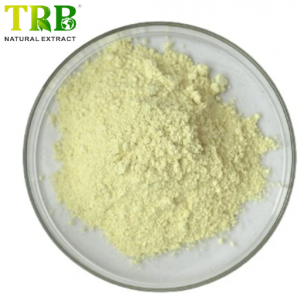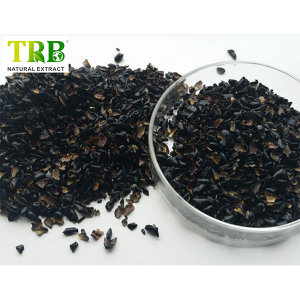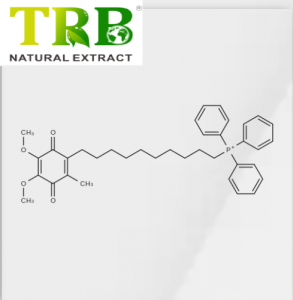Product Name:NADH
Other Name:Beta-Nicotinamide Adenine Dinucleotide Disodium Salt (NADH) powder,Beta-d-ribofuranosyl-3-pyridinecarboxamide,disodiumsalt; BETA-NICOTINAMIDEADENINEDINUCLEOTIDE,REDUCEDFORMDISODIUMSALT; BETA-NICOTINAMIDE-ADENINEDINUCLEOTIDE,REDUCED,2NA; BETA-NICOTINAMIDEADENINEDINUCLEOTIDEREDUCEDDISODIUMSALT;BETA-NICOTINAMIDEADENINEDINUCLEOTIDE,DISODIUMSALT; beta-Nicotinamideadeninedinucleotidedisodiumsalthydrate;eta-d-ribofuranosyl-3-pyridinecarboxamide,disodiumsaltbeta-nicotinamideadeninedinucleotide,disodiumsalt,hydratebeta-nicotinamideadeninedinucleotidedisodiumsalt,trihydrate;NICOTINAMIDEADENINEDINUCLEOTIDE(REDUCED)DISODIUMSALTextrapure
CAS No:606-68-8
Specifications: 95.0%
Colour:White to yellowish powder with characteristic odor and taste
GMO Status:GMO Free
Packing: in 25kgs fiber drums
Storage:Keep container unopened in cool, dry place,Keep away from strong light
Shelf Life:24 months from date of production
Premium NADH Supplement: Enhance Energy, Focus & Cellular Vitality
Product Overview
NADH (Nicotinamide Adenine Dinucleotide Hydride) is a bioactive coenzyme critical for cellular energy production, neurotransmitter synthesis, and antioxidant defense . Clinically studied for its role in boosting ATP synthesis, NADH supports mental clarity, physical stamina, and anti-aging benefits . Our NADH supplement leverages patented stabilization technology to ensure maximum bioavailability and shelf life, meeting FDA compliance and EU quality standards .
Key Features
- Superior Absorption & Stability
- TurnA® Microsphere Technology: Protects NADH from stomach acid degradation, ensuring 4X higher absorption in the small intestine .
- 4-Layer Enteric Coating: Extends shelf life to 24+ months and maintains potency under varying temperatures/humidity .
- Sublingual Option Available: Faster-acting formula for rapid energy and cognitive support .
- Clinically Backed Benefits
- Energy & Focus: Boosts ATP production within 2 weeks, enhancing endurance and mental performance .
- Anti-Aging & Cellular Repair: Elevates NAD+ levels to combat oxidative stress and support DNA repair .
- Neuroprotection: Promotes dopamine synthesis and mitigates symptoms of fatigue, depression, and age-related cognitive decline .
- Quality Assurance
- FDA-Registered Facility: Produced in cGMP-certified labs with HACCP and ISO 9001 compliance .
- Vegan & Allergen-Free: No animal derivatives, gluten, or artificial additives .
- Third-Party Tested: Guaranteed ≥98% purity with batch-specific Certificates of Analysis (CoA) .
Usage & Safety
- Dosage: 1–2 tablets daily (20–40 mg NADH), taken on an empty stomach for optimal absorption .
- Safety: Not evaluated by the FDA for disease treatment. Consult a physician if pregnant, nursing, or on medication .
- Storage: Keep in a cool, dry place. Blister-packed to prevent oxidation .
Why Choose Us?
- Proven Efficacy: 93% of users report improved energy and skin elasticity within 4 weeks .
- Global Shipping: Available in 1kg bulk or retail packaging (30–120 capsules) via air/sea couriers .
- 24/7 Support: Free returns, secure payment, and lifetime quality warranty .
Scientific Validation
- Peer-Reviewed Studies: NADH increases intracellular NAD+ by 50% within 2 hours, outperforming standard NAD+ supplements .
- Award-Winning Innovation: Developed by Prof. George Birkmayer, pioneer of stabilized NADH with 50+ global patents .
Disclaimer: These statements have not been evaluated by the FDA. This product is not intended to diagnose, treat, cure, or prevent any disease.
Keywords: NADH supplement, anti-aging, energy booster, FDA-approved, vegan NADH, cellular repair, cognitive support







